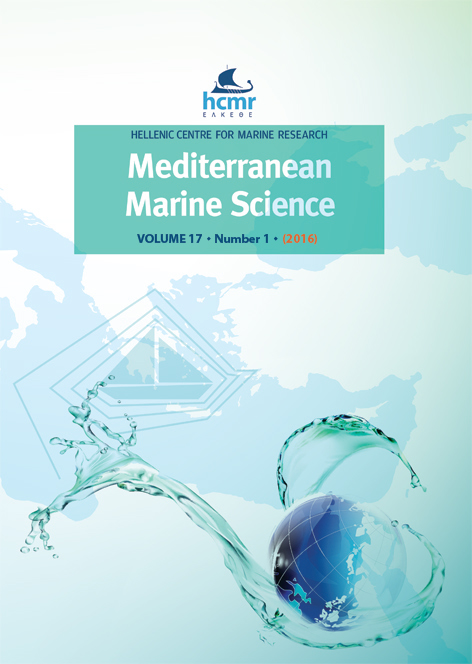Does habitat complexity influence fish recruitment?
Περίληψη
Human activities facilitate coastal habitat transformation and homogenization. The spread of marine invasive species is one example. This in turn may influence fish recruitment and the subsequent replenishment of adult assemblages. We tested habitat complexity effect on fish (Teleostei) recruitment by experimentally manipulating meadows of the habitat-forming invasive macroalga Caulerpa taxifolia (Chlorophyta). Among the fourteen fish species recorded during the experiment, only two labrids (Coris julis and Symphodus ocellatus) settled in abundance among these meadows. Patterns in the abundance of these juveniles suggested that reduced tri-dimensional meadow complexity may reduce habitat quality and result in altered habitat choices and / or differential mortality of juveniles, therefore reducing fish recruitment and likely the abundance of adults.
Λεπτομέρειες άρθρου
- Πώς να δημιουργήσετε Αναφορές
-
CHEMINÉE, A., MERIGOT, B., VANDERKLIFT, M. A., & FRANCOUR, P. (2015). Does habitat complexity influence fish recruitment?. Mediterranean Marine Science, 17(1), 39–46. https://doi.org/10.12681/mms.1231
- Τεύχος
- Τόμ. 17 Αρ. 1 (2016)
- Ενότητα
- Research Article
Authors who publish with this journal agree to the following terms:
- Authors retain copyright and grant the journal right of first publication with the work simultaneously licensed under a Creative Commons Attribution Non-Commercial License that allows others to share the work with an acknowledgement of the work's authorship and initial publication in this journal.
- Authors are able to enter into separate, additional contractual arrangements for the non-exclusive distribution of the journal's published version of the work (e.g. post it to an institutional repository or publish it in a book), with an acknowledgement of its initial publication in this journal.
- Authors are permitted and encouraged to post their work online (preferably in institutional repositories or on their website) prior to and during the submission process, as it can lead to productive exchanges, as well as earlier and greater citation of published work (See The Effect of Open Access).





